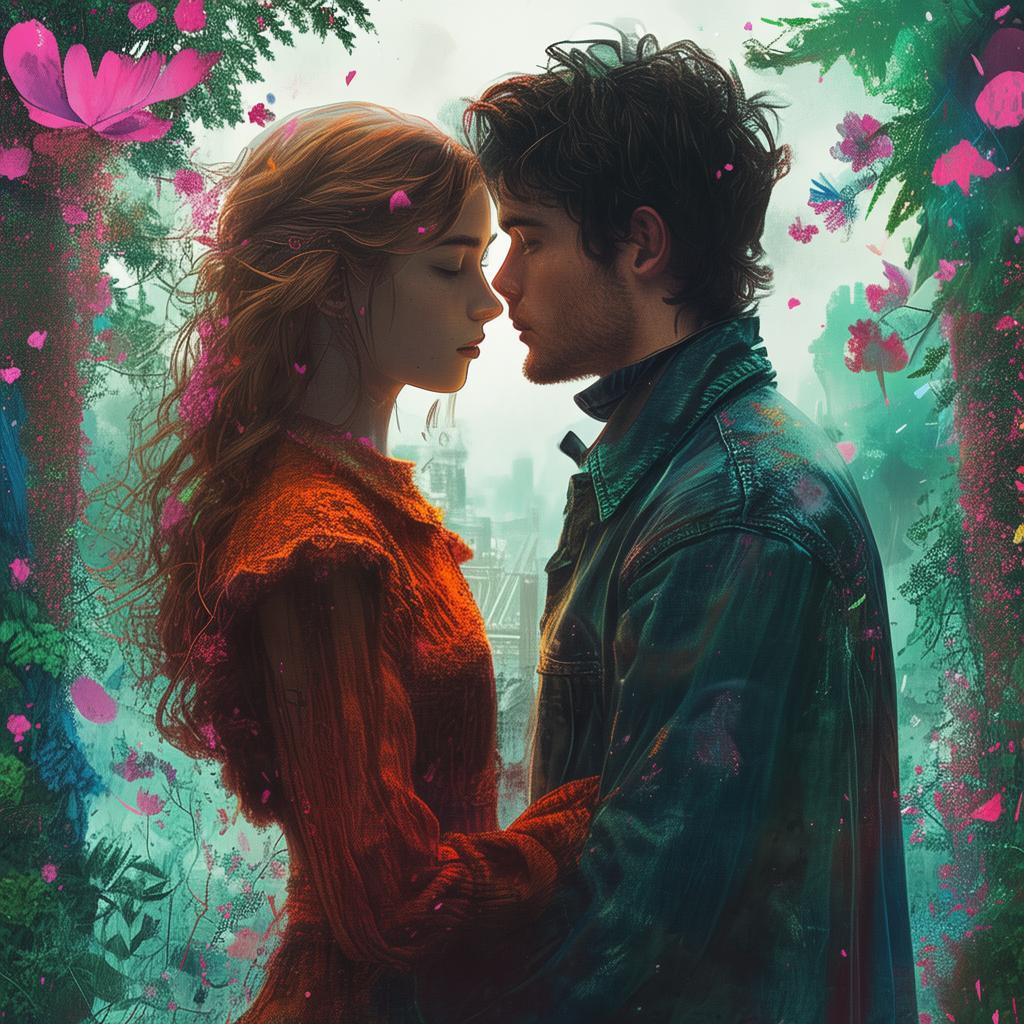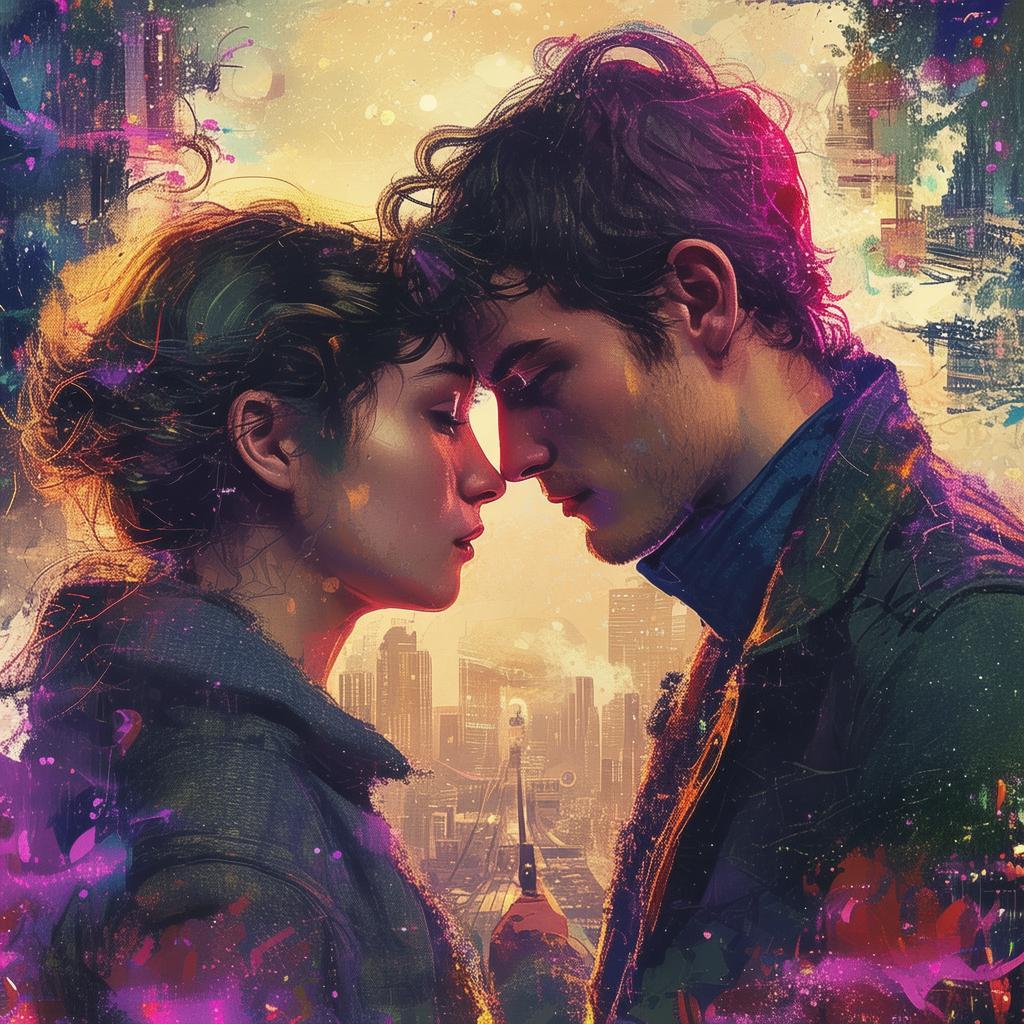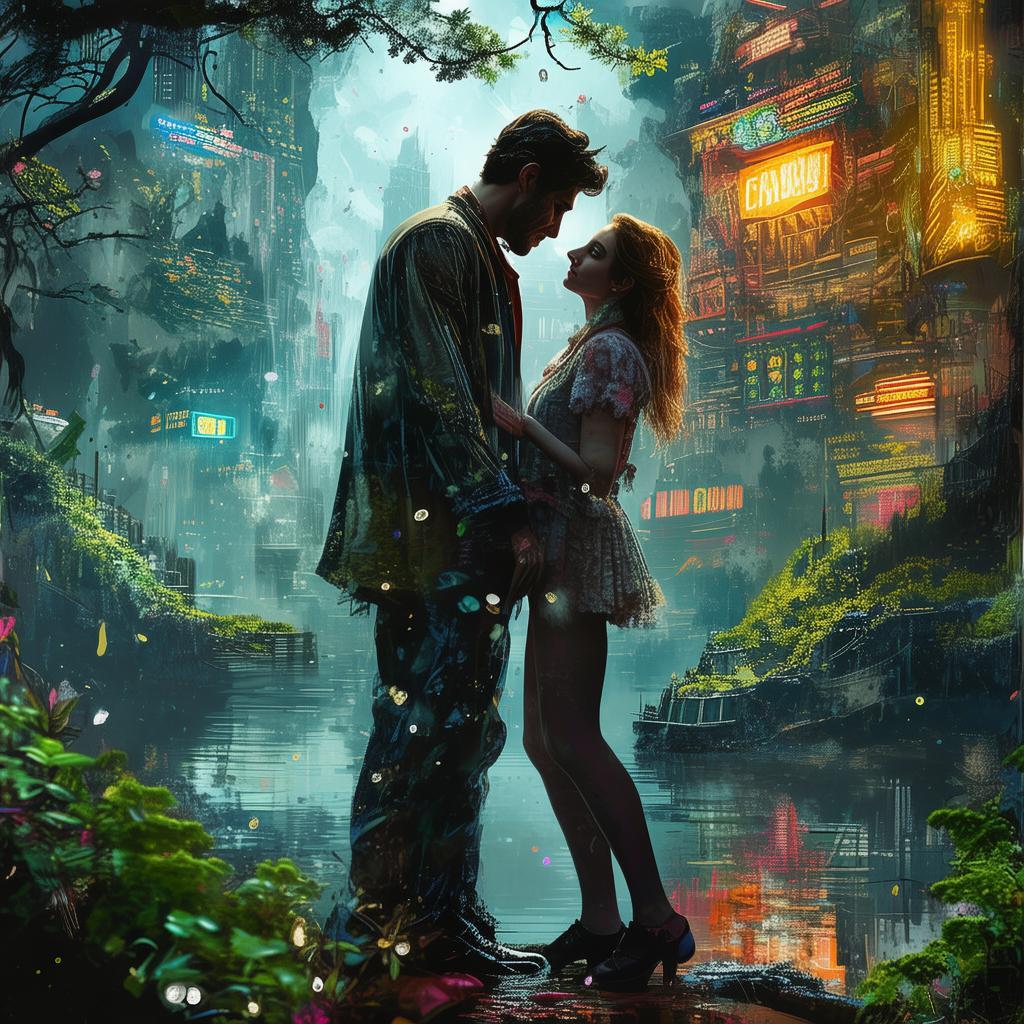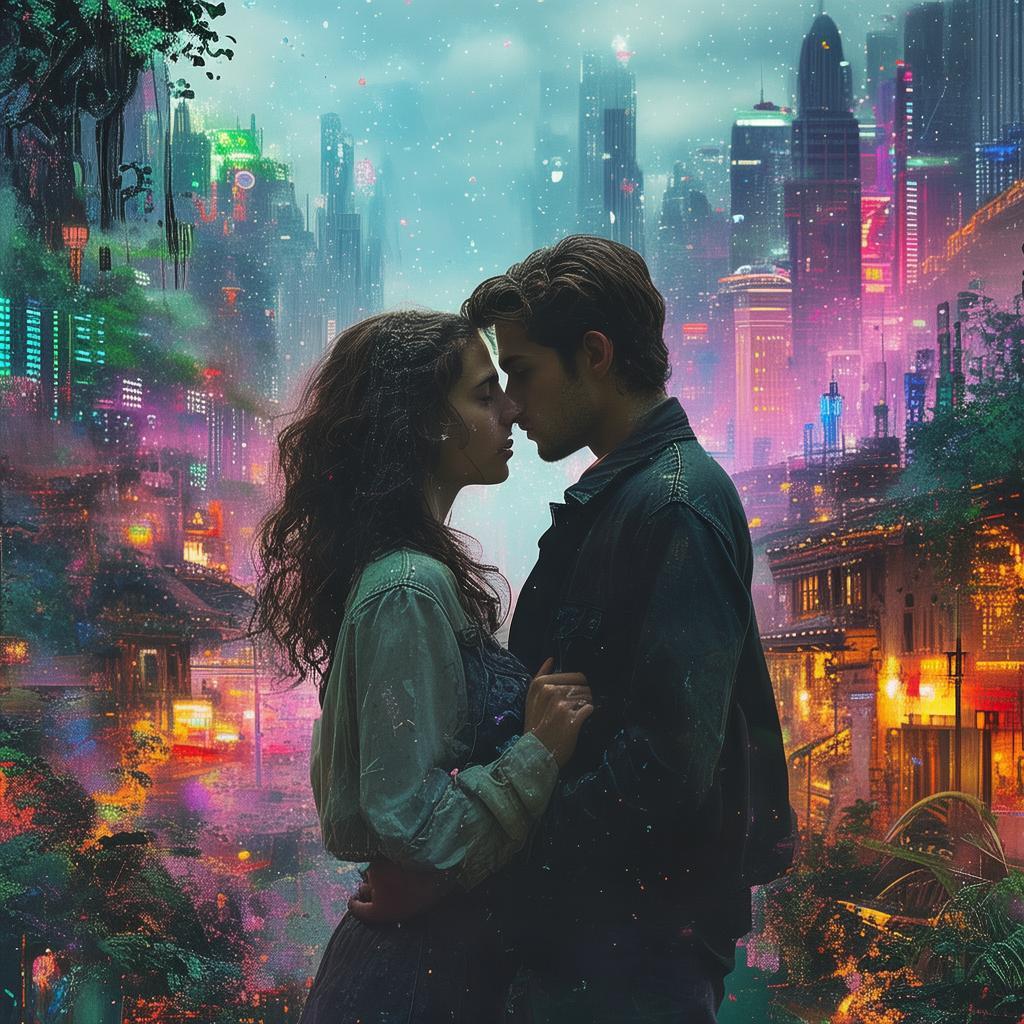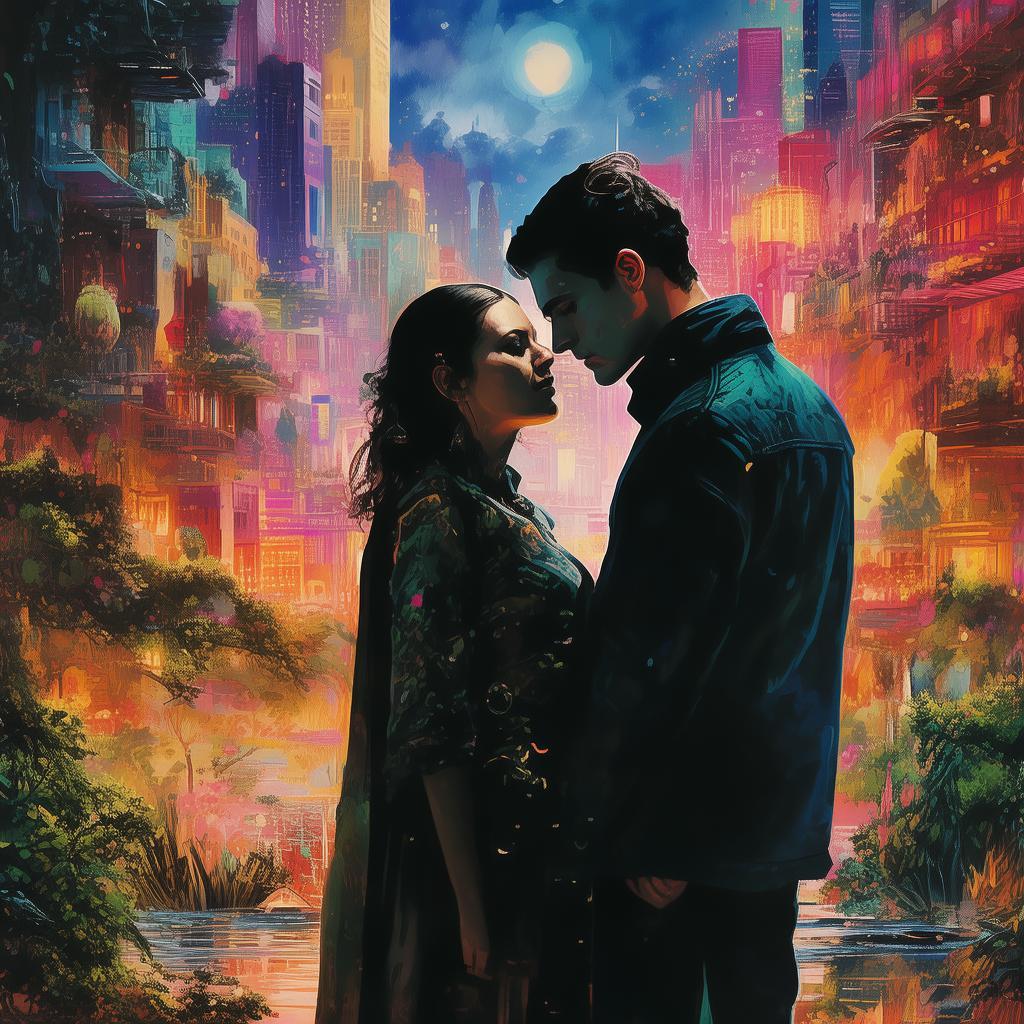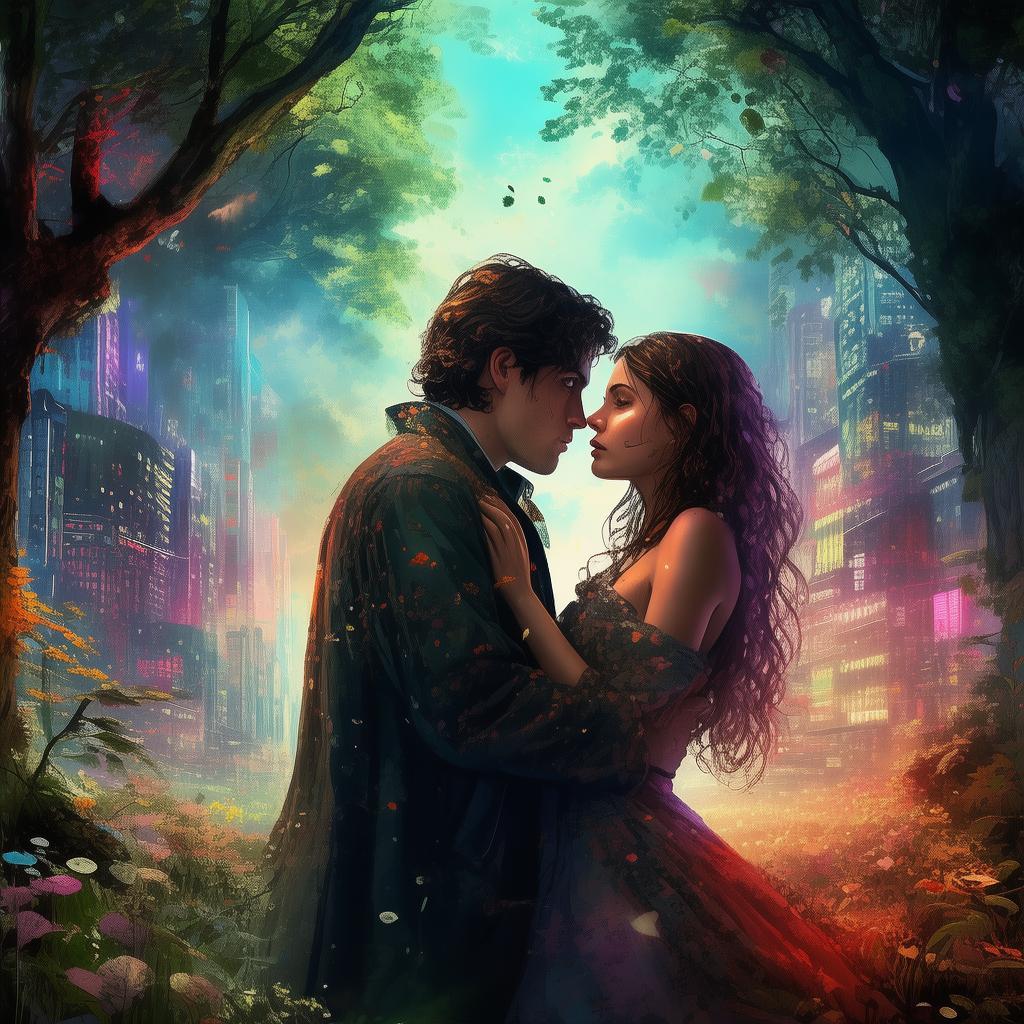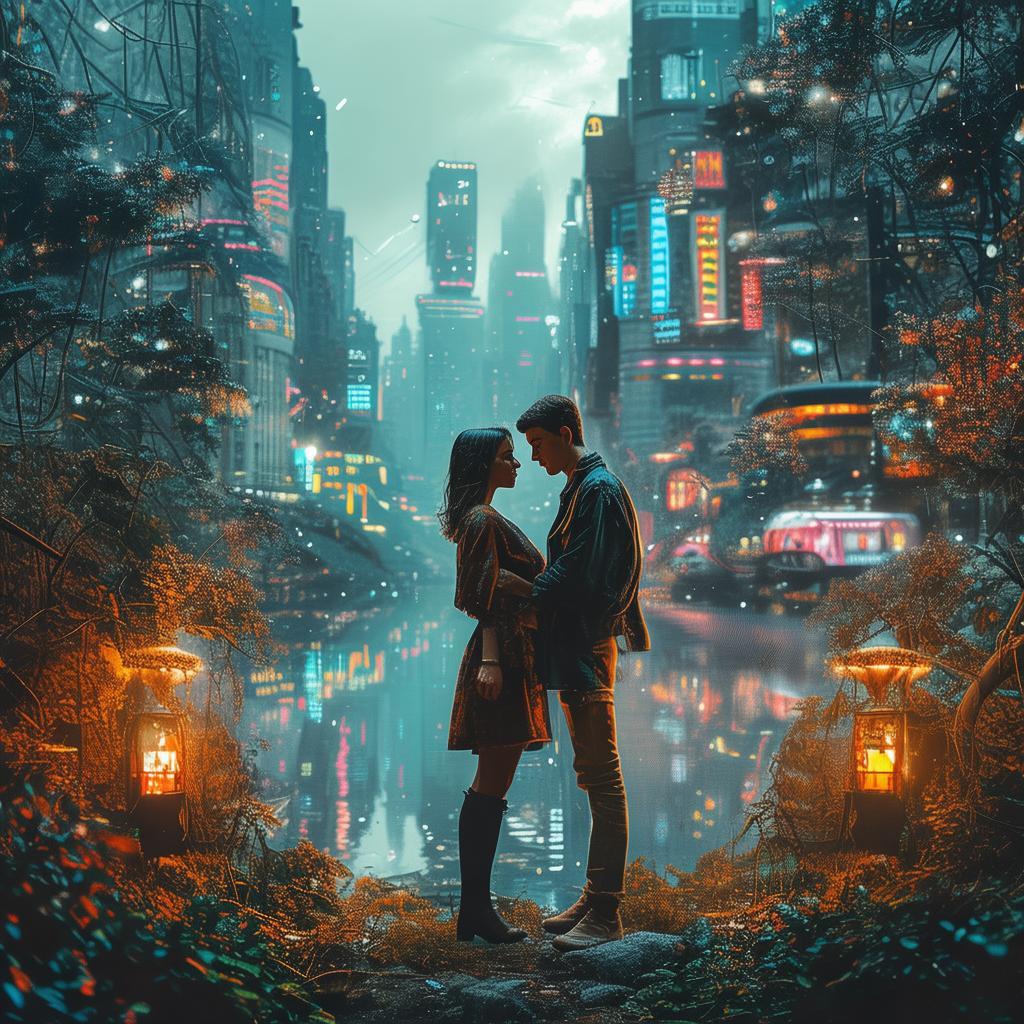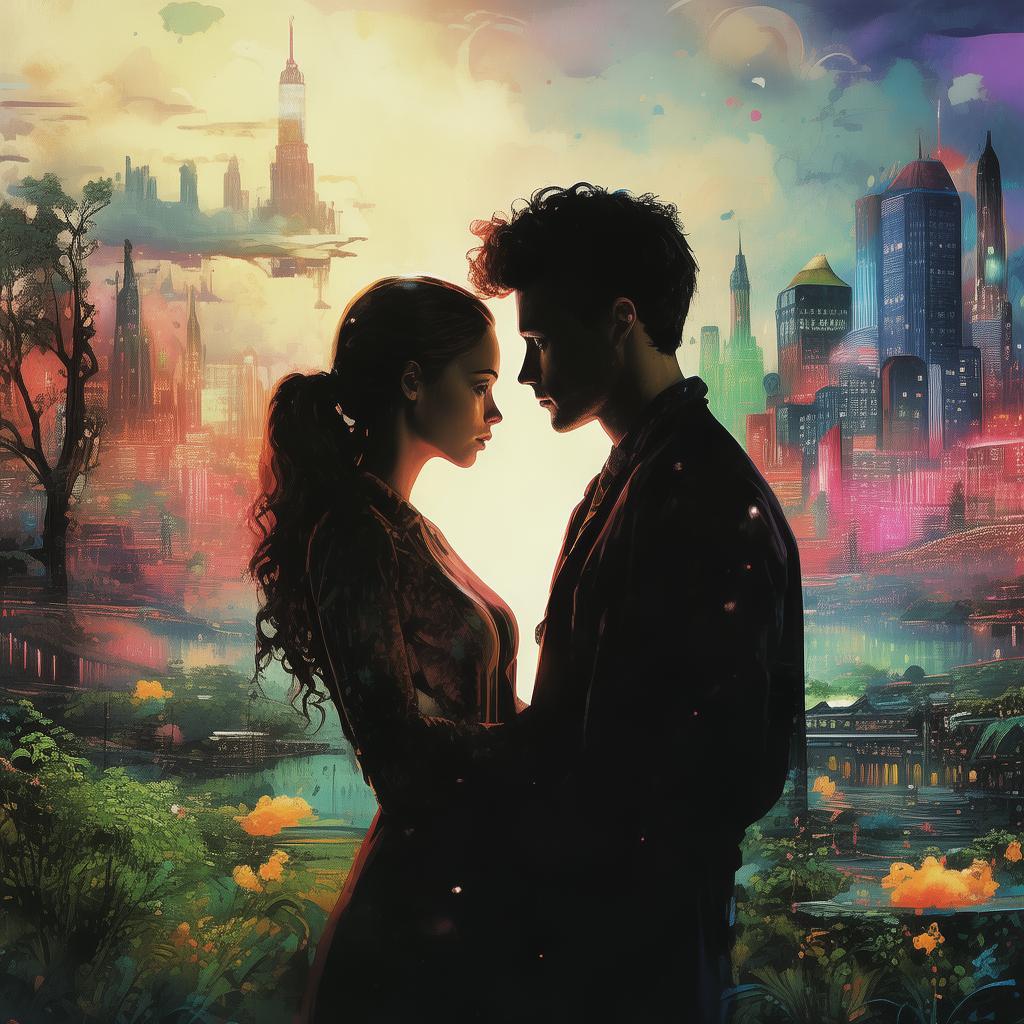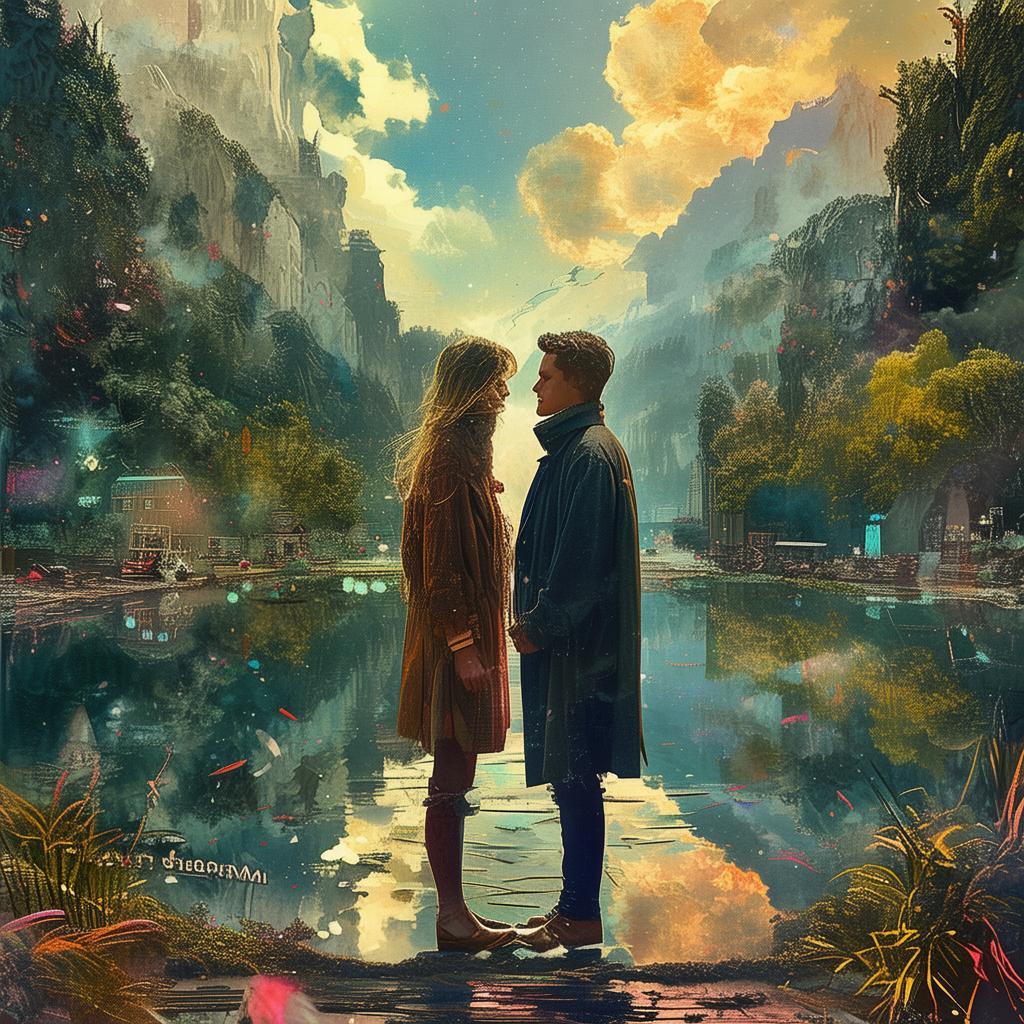Whispers of the Silent Screen: A Love Unspoken
The theater was dark, save for the flickering glow of the projector and the hushed murmurs of the audience. It was 1928, a time when the silent cinema ruled the silver screen. In the back row, under the veil of a large coat, a woman named Isolde watched the movie, her heart aflutter with the echoes of a past love. She was an actress, once a star in the golden age of silent films, but now a ghost in the industry, her face etched with lines of unspoken dreams.
On the screen, a young starlet named Eliza danced across the silent canvas, her eyes wide with innocence and desire. Isolde's breath caught in her throat as she watched the story unfold. Eliza was in love, her heart set on a man whose face she had never seen. The film was "The Whispering Shadows," a tale of forbidden love, a story that mirrored Isolde's own silent yearnings.
Isolde's story began in the same era, in the bustling city of Berlin. She had been a rising star, her voice as enchanting as the melodies of the time. Her love had been the same, passionate and consuming, yet as ephemeral as the film reels of her career. The man she loved, Jakob, was a director whose films were whispered about in the backrooms of the industry. They had met under the guise of professional collaboration, their love forbidden by the strictures of their public personas.
Their affair had been a silent symphony, whispered between the lines of their dialogue and the soft glow of their candlelit encounters. Yet, as the world around them changed, as the talkies replaced the silents, Jakob had vanished into the shadows of his own success. Isolde's career faded with the silence, leaving her heart in the lonesome melody of her past.

Now, sitting in the theater, Isolde's gaze was locked on Eliza's eyes, a mirror to her own. She watched as Eliza's love story reached its climax, a forbidden romance that mirrored her own. Eliza's love was a flame that could not be extinguished, even in the face of danger and betrayal. It was a love that would consume her, leave her a silhouette in the darkness of the world.
As the film reached its conclusion, Eliza's character, like Isolde's, was left incomplete. Her story had ended with a whisper, a love that was never spoken aloud, yet felt by all who had witnessed its silent power.
The theater lights flickered to life, and Isolde's coat fell open to reveal the young woman she once was, the actress who had once danced in the glow of the spotlight. She left the theater, her steps heavy with the weight of unspoken words. The world outside was as silent as the films of her youth, the noise of the city a distant echo of the love that had once filled her life.
In a nearby café, Jakob watched her leave, a man who had also become a ghost in the shadows of his own success. Their love had been a silent cinema, a film that played on the silver screen of their hearts, never to be seen by the world.
Isolde and Jakob never spoke of their love again. They lived in the whispers of the silent screen, their passion a silent film that played in the darkness of their souls. Yet, in the theater, under the flickering glow of the projector, their love was given voice, a love that was unspoken, yet understood by all who dared to watch.
✨ Original Statement ✨
All articles published on this website (including but not limited to text, images, videos, and other content) are original or authorized for reposting and are protected by relevant laws. Without the explicit written permission of this website, no individual or organization may copy, modify, repost, or use the content for commercial purposes.
If you need to quote or cooperate, please contact this site for authorization. We reserve the right to pursue legal responsibility for any unauthorized use.
Hereby declared.

